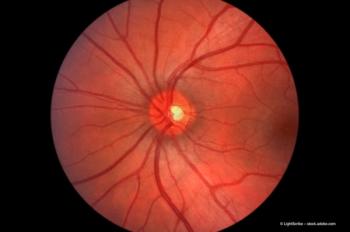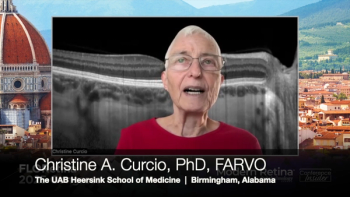
AMD gene discovered
The SERPING1 gene code influences the likelihood of developing age-related macular degeneration (AMD), according to study results published online ahead of print by The Lancet.
The SERPING1 gene code influences the likelihood of developing age-related macular degeneration (AMD), according to study results published online ahead of print by The Lancet.
Professor Andrew Lotery, FRCOphth of Southampton General Hospital, Southampton, UK and colleagues conducted low-density screening of the genes of patients with AMD (n=479), and compared them with the genes of control patients (n=479). The team used 93 single nucleotide polymorphisms (SNPs) to look at 32 genes previously known to be relevant in the development of AMD, and then conducted high-density screening to confirm initial results. To validate results, the study was also replicated in a US case series (AMD, n=248; control, n=252).
The team found that variation in the SERPING1 gene - specifically the SNP variant rs2511989, located with intron six of the gene, although five other SNP variants were also implicated - demonstrated a highly significant association with AMD. This was the only association found between AMD and all of the genes tested, and the US cohort of the study corroborated these findings.
Thus the team conjectured that variation within the SERPING1 gene may influence vulnerability to AMD development, most likely because these variants disable the gene’s role in inhibiting complement component 1 (C1) which, in part, defends against AMD.
Newsletter
Get the essential updates shaping the future of pharma manufacturing and compliance—subscribe today to Pharmaceutical Technology and never miss a breakthrough.




























